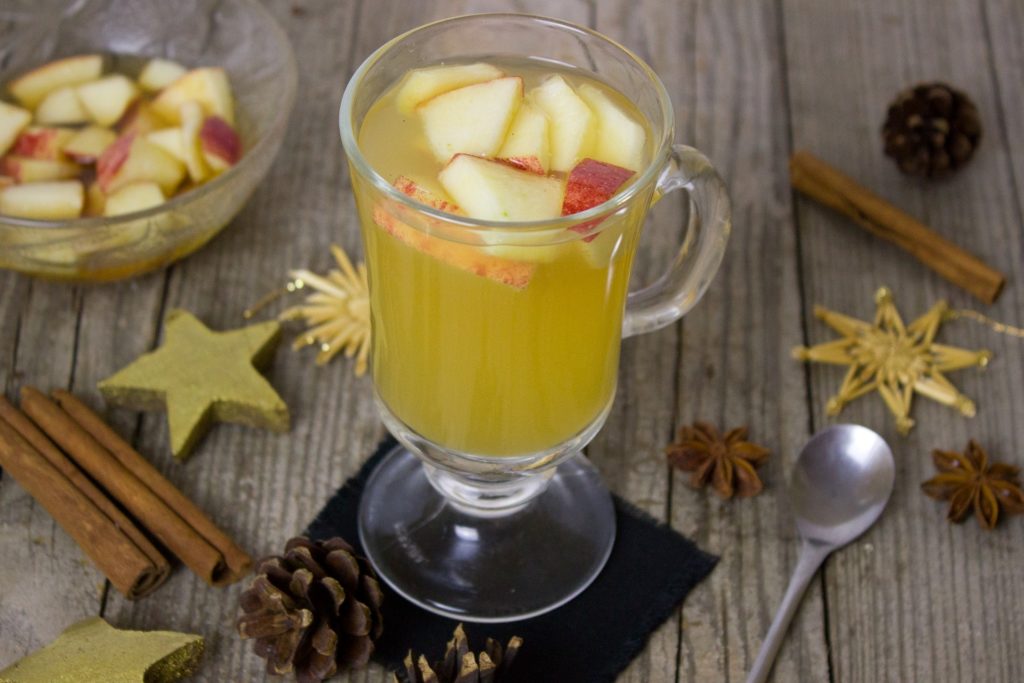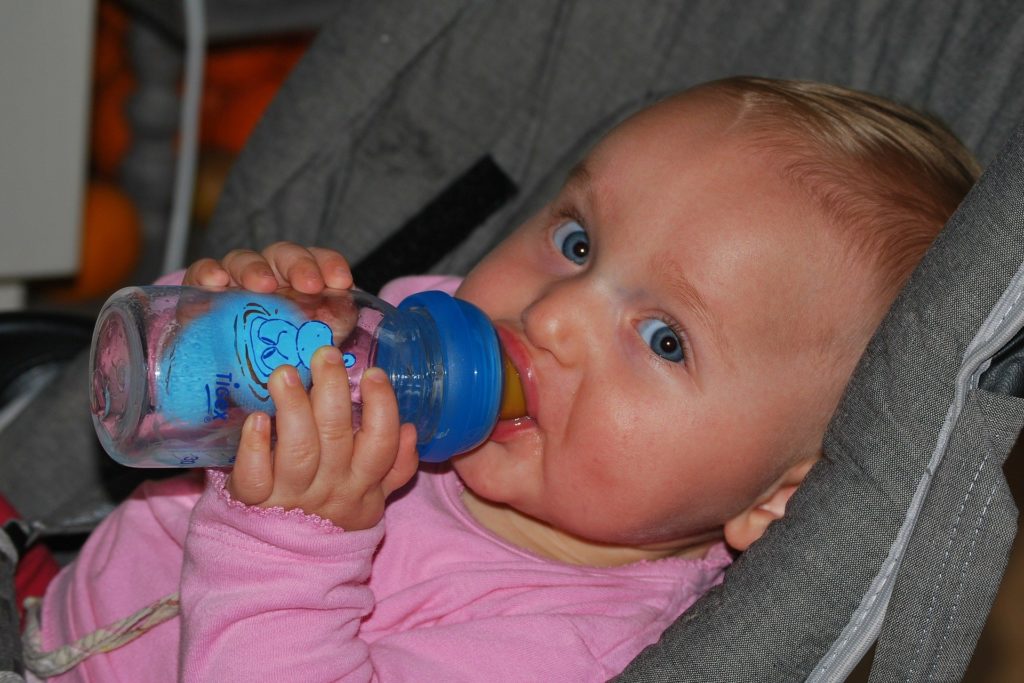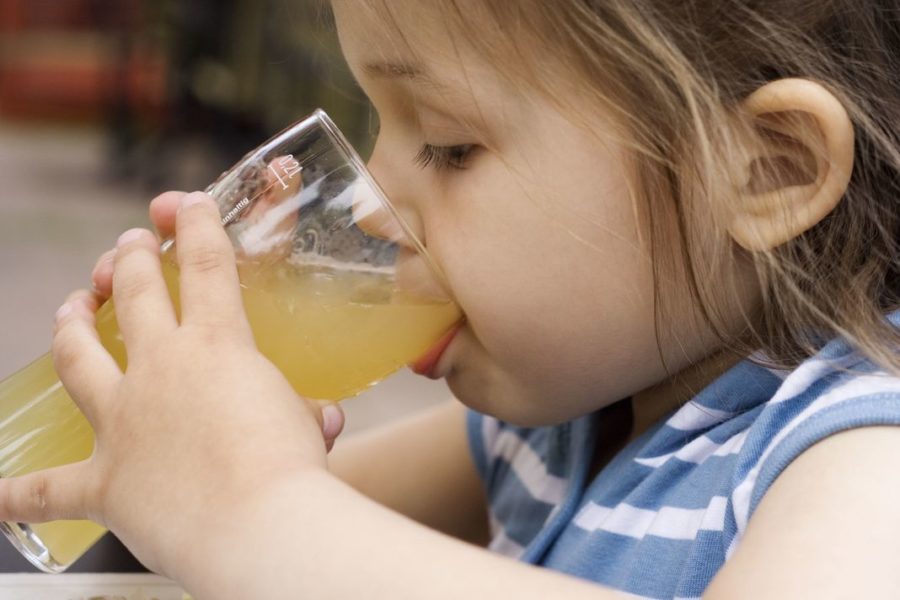Your baby needs breast milk or formula milk only as the primary source of nutrients for the first six months. You can add diluted fruit juices and vegetable juices to their diet after six months. Apple Juice is one of the best-known juice options. But Apple Juice for babies? Is it safe? Read on to find out.
When Can Babies Have Apple Juice?
“You may think juice is an easy liquid to give and wonder, “What age will babies have apple juice? ”. The American Academy of Pediatrics suggests that the perfect age to start feeding your baby apple juice is 1 year old. To get the babies acquainted with Apple juice, they must be handled slowly. Giving a 6-month-old apple juice is thought to lead to all kinds of ailments and complications because of the sugar content.

Image Source – Pixabay
Risks of Giving Apple Juice to Babies
It’s still debatable whether apple juice is “unsafe” for your child as conflicting opinions exist on this subject. But it might not even be a smart thing for your babies to add drinks, like apple juice. There are certain reasons for this:
1. Babies under six months of age do not need juice
Ideally, children less than six months should be on a diet focused on breastfeeding or baby formula. From one of these two sources, all the nutrients the infant needs can be provided. So you don’t need to give your kid apple juice nutritionally. If your child has constipation, the only exception to this rule is to offer him/her a tiny portion of prune juice to help him/her motion.
2. There is a chance of tooth decay in children who have so much juice
There is a high concentration of sugar in juices, one obtained in the supermarket in general. And if your kid gets apple juice from his bottle, then there is a very high risk of sugar remaining in his mouth, causing tooth decay. Be sure that the baby is not given juice until the baby is ready to use a sippy cup or a regular glass.
3. Juices are known to have unsafe content
Many parents reach out to buy canned juices for their children in the supermarket. Such juices came in the face of controversy a few years back when a prominent medical television host reported that canned juices contain elevated levels of arsenic. Many government-funded governments have argued that the arsenic contained in canned juices is within permissible levels” and “harmless and inorganic in nature,” rubbishing this point. Later research, however, revealed that the original claim was actually valid and that the arsenic present in certain juices is potentially carcinogenic. The verdict on this one is still out but we agree this is a fair enough excuse to steer away from store-bought juices.

Image Source- Pixabay
4. Babies on a diet of juice are at risk of obesity
Studies further find that children who consume as little as 300 ml of juices daily are 60% more likely to become obese later on. Juices can also lead to unnecessary weight gain and even diaper rash in children.
5. Higher Risk of Diabetes
Analysis has found that juices increase the risk of diabetes later in life due to their high sugar content.
Tips For Giving Apple Juice To Your Baby
If you are considering feeding your baby apple juice, this is what you need to do.
- When your kid is under the age of six months, do not give him or her apple juice. In reality, starting juices might not be a wise idea until the baby is one year old.
- Often opt for fresh fruit as opposed to drinks for older infants. Fruits have more nutrients, reduced sugar, and lower calories, and have the same flavor as juices.
- Dilute it if you have to offer juice, ideally to the point that it’s made like flavored wine. If your kid is new to juices, there’s no difference this dilution can make. But if your child is still used to juices, you may want to eventually wean him off by gradually diluting his drink.
- Never give juices in your bottle to a younger child as this raises the risk of tooth decay.
- If you have no option but to select juices obtained from the supermarket, then only choose products that offer 100% juice without added sugar.
- In children, fruit juices containing sorbitol or high fructose levels as sweeteners can induce restlessness, gas, and stomach discomfort. Since young children sometimes have trouble breaking down carbohydrates, including these sugars, the sweeteners may trigger problems in infants.
- Harmful bacteria, such as E-coli and Salmonella, can be found in unpasteurized juice.
How Can Apple Juice Help Constipated Babies?
There are also advantages of apple juice, which include being healthy for the bowels of a baby, after having said that. Sometimes you might learn that your child feels constipated. With apple juice, baby constipation may be treated.
- Because of the carbohydrates and liquids that serve as a natural laxative, Apple juice aids constipation.
- Typically 2 ounces of apple juice for a baby will get rid of constipation and help ease bowel passage.
- Make sure babies are given the proper amount of recommended apple juice as per AAP so that they do not end up having too much sugar.
Babies are very precious creatures and working out the dos and don’ts will also be a steep learning curve for parents. Don’t feel incompetent, when and when they come up, it’s just natural to work out their criteria. Anything in moderate amounts does not affect your baby with regard to apple juice. Make sure that you proceed and go on to juice with applesauce. Due to the ill-effects of preservatives and carbohydrates, tend to adhere to natural flavors without additives. We hope that our article has helped you to understand the benefits and drawbacks of apple juice and also the amount you can give your baby.













